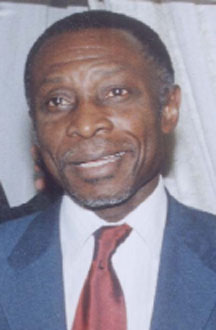APNU MP Carl Greenidge has signalled the opposition’s preparedness to withhold support for the passage of all government legislation, should President Donald Ramotar refuse to assent to opposition-piloted bills, including those intended to give effect to motions passed by the National Assembly.
The move is as a result of government not acting on several motions passed by the opposition-controlled National Assembly, calling on the administration to make certain changes to ensure greater transparency, accountability and compliance with constitutional and other laws. Among them are motions calling for the government to disclose details on transactions of the National Industrial and Commercial Investments Limited (NICIL) and to allow the service commissions to draw funding directly from the Consolidated Fund.
On June 13, APNU and the AFC used their combined parliamentary majority to move the four service commissions towards financial independence through a motion. The motion, moved by Greenidge, was approved without the support of the government, which argued that the process should be directed through constitutional reform.

The motion is intended to allow the Judicial, Public, Teaching and Police service commissions to each draw finances directly from the Consolidated Fund—rather than be maintained as budget agencies, which Greenidge and other opposition MPs argued compromises their independent functioning.
During the debate on the motion, opposition MPs argued that the move will result in the service commissions being more effective in their respective mandates, which include appointments to offices in the judiciary, the public service, the teaching service and the police force, and exercising disciplinary control over appointees.
On June 27, the parliamentary opposition used their majority to pass a motion calling for the government to present a report on the sale of national assets by NICIL. Greenidge also moved that motion, which called for the administration to comply with the Fiscal Management and Accountability Act (FMAA), with regard to agencies authorised to have extra budgetary funds.
Greenidge warned that should the government choose not to abide by the motions, then APNU will be tabling bills to bring to effect what the motions had set out to accomplish.
Speaking to the Stabroek News on Friday, Greenidge said that the motions that were passed are supposed to be implemented by the government, especially those dealing with the constitutional offices and budget agencies.
But he said that if the government will not address what the motions are calling for, then the opposition will have no alternative but to bring legislation to support the motions. “We hope to have such legislation amended before the commencement of the parliamentary recess on August 10,” he said. “On all those constitutional offices…we are moving them from being budget agencies ourselves,” he said.
Greenidge also said the APNU will bring legislation to repeal the Former President’s (Benefits and Other Facilities) Act 2009, that a special parliamentary committee be convened to examine the Pensions (President, Parliamentary and Special Offices) Act and that a revised superannuation package be sent by a Special Select Committee for consideration and approval by the National Assembly.
Asked whether he was concerned about President Ramotar’s recent declaration that he would not be assenting to any bill which would not have had the involvement and input of the government, Greenidge questioned the president’s rationale for withholding support for bills. “In Parliament every bill is debated, so you cannot say government is not involved in the Bill,” he said.
Greenidge added that when President Ramotar refuses to sign the bills, he must give good reason for not doing so. “We are waiting to hear what reasons he will give,” said Greenidge. “If he does not assent to bills that have been passed by the Parliament, then we will withhold our support for all of their legislation,” he added.
Speaking to Stabroek News yesterday, Speaker of the National Assembly Raphael Trotman said that because the Parliament is the highest decision-making forum in the land, motions, when carried, though not law, ought to be looked at and adopted. “For the government to say they don’t care flies in the face of the Westminster system” he said. “Those motions are no different from those that come up after a select committee would have looked at a matter and made recommendations for change,” he said. “It is expected that government will go through them, review the findings of the Parliament and bring itself in alignment, even though the motions are not Acts of Parliament,” Trotman said.




